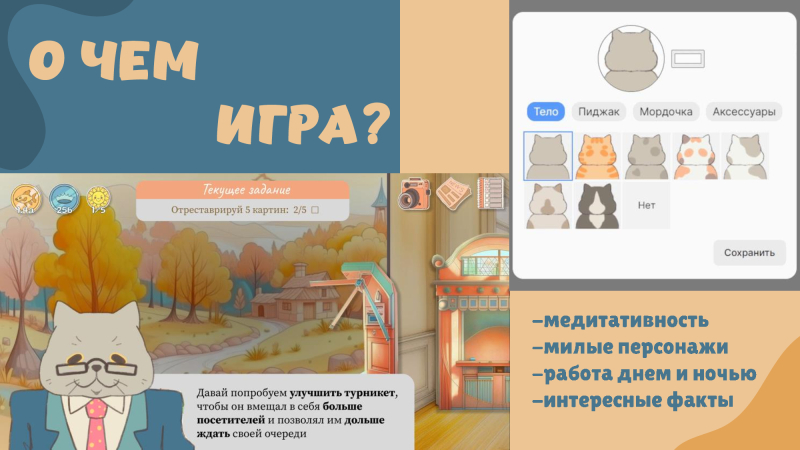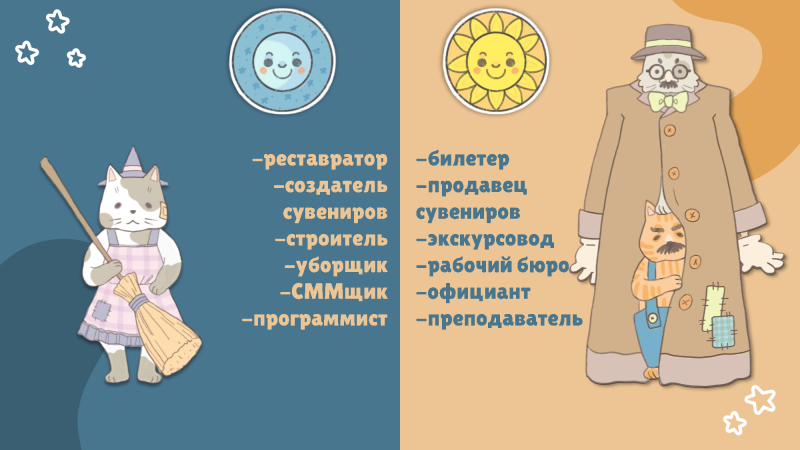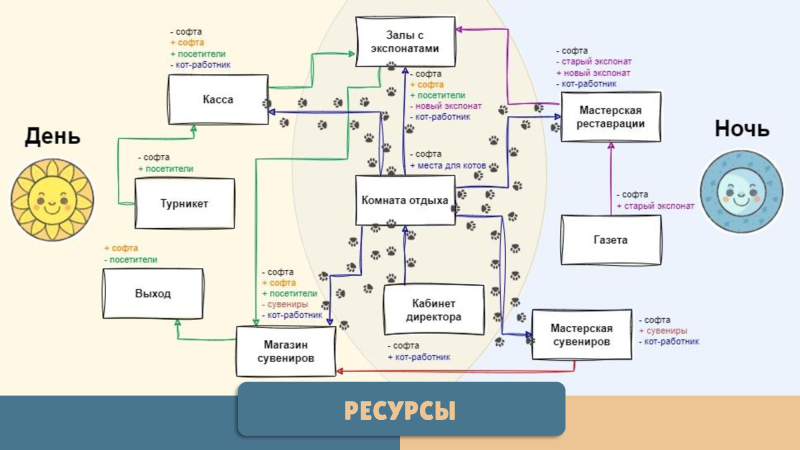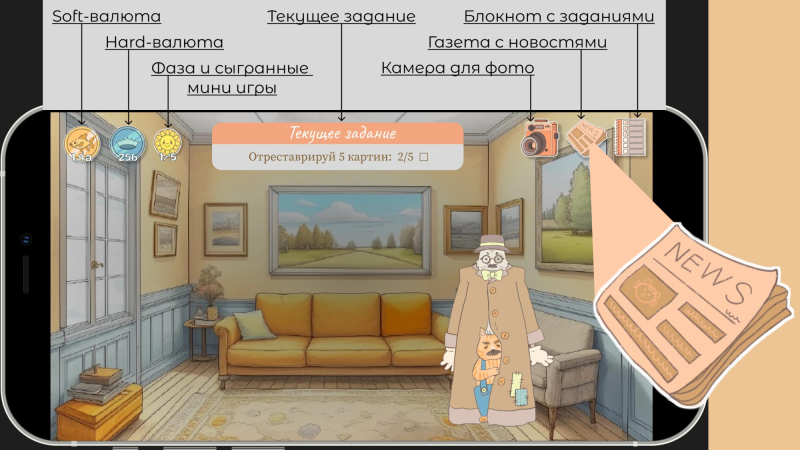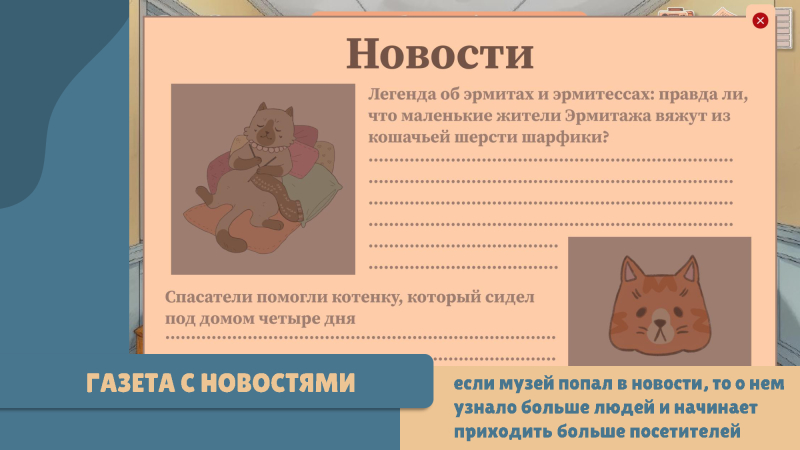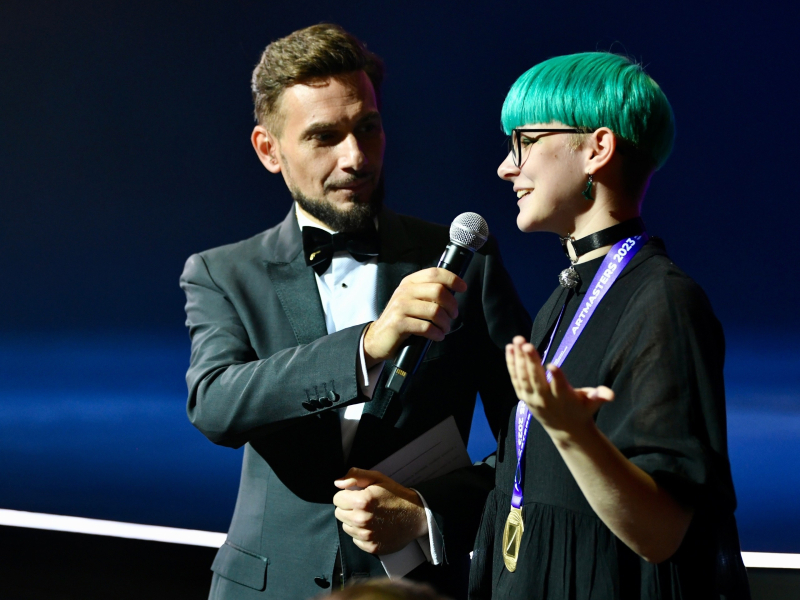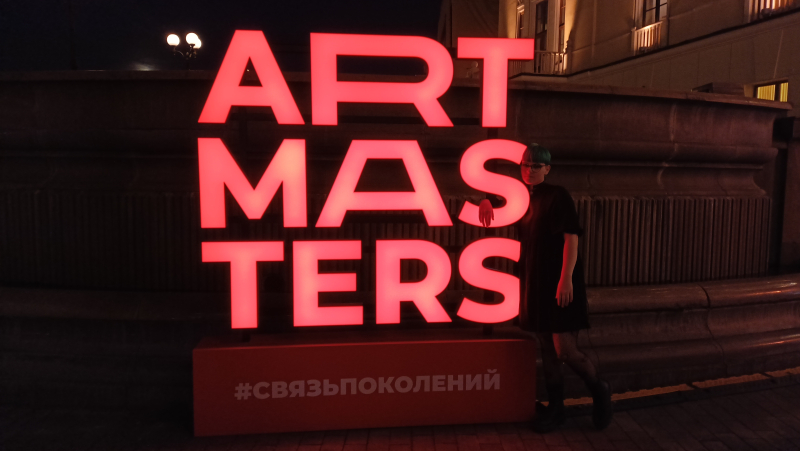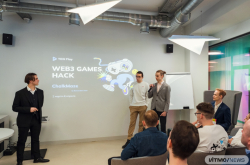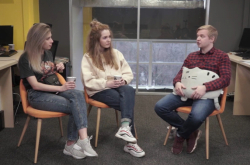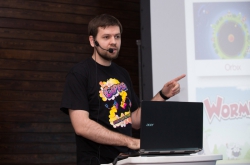Cats rule the game world
Even though I’ve been into game development for just over two years, I’ve been programming since I was a kid. My grandmother was a programmer, so it seemed fit for me to choose this field when I entered vocational school. Once I was there, however, I quickly realized that just coding was boring – making games, on the other hand, is much more interesting. This is my way of fulfilling my creative potential through bringing my ideas to life.
If you want to develop games, especially if you are on your own, it’s not enough to just know how to code. For instance, I had to teach myself to work with 3D, animation, and sound. Also, my experience of studying in an art school comes in really handy.
During my studies at the vocational school and at ITMO, I participated in all kinds of contests. In 2021, I bagged the third place in St. Petersburg in the championship Worldskills Russia in the category 3D Modeling for Computer Games. I also took part in the national student contest Your Turn where I won a four-day trip to Moscow. Apart from contests, I often take part in university game jams, especially those organized by the Celestial Beasts student club. At a game jam, teams have a limited time to develop a prototype for a game on a specified topic. All such experiences boost my portfolio with completed cases that have helped me, for instance, pass the selection round of ArtMasters.
I also have a cat called Tykva (Pumpkin – Ed.). Cats are my favorite animals, so they appear in my every game. In one of them, the player solves puzzles by manipulating a cat and its reflection, and in the other – fixes a mechanism that produces cats. These furry creatures have also helped me win game jams. There was one time when a judge, who also had a cat, was so touched that he gave my game additional points.
How to compete in and win ArtMasters
It was by accident that I learned about ArtMasters. I got curious and thought: why not? However, the closer I got to the final, the more I wanted to win. That’s part of my personality – I don’t like losing, even in a board game.
The contest spanned several rounds. In the selection round, I had to submit a portfolio – my game jam experience came in really handy here. There was also a test with questions about various formulas used in game design. This test was rather challenging for me because I am more of a practitioner and less familiar with the theory of game design.
If you are planning to take part in ArtMasters or simply are interested in gamedev, I recommend reading Level Up by Johnny Cullen and Designing Games: A Guide to Engineering Experiences by Sylvester Tynan. These books cover various topics within the field, such as how to combine storytelling with interactive controls, which engaging mechanics to use, what trends there are in gamedev, and so on.
For the qualification round, I picked one of the three suggested games and described its drawbacks, from the perspective of players and the industry, as well as ways to fix them. In such tasks, it’s important to follow the established criteria. Say, if there is a character limit for your presentation, it’s better to stay well within it so as not to lose points.
The final round was held in two stages: online and offline (in Moscow). For the online round, participants needed to create a game concept document, which included writing a game story and defining its audience, platform, and mechanics. The result was to be an economic simulator, like the Idle Tycoon series, showcasing an intriguing yet lesser-known cultural, scientific, or historical Russian phenomenon. All my games are centered around cats – so this project was no exception: I picked the Hermitage cats. The cats are formal employees at the museum; they catch rats and even have a spokesman.
I completed two tasks in the second round. The first one was to design a board game akin to arcade hockey. The day before, we all went to play the machines to get a better grasp of the game’s mechanics and spirit. It was no easy feat because I had never built a board game before.
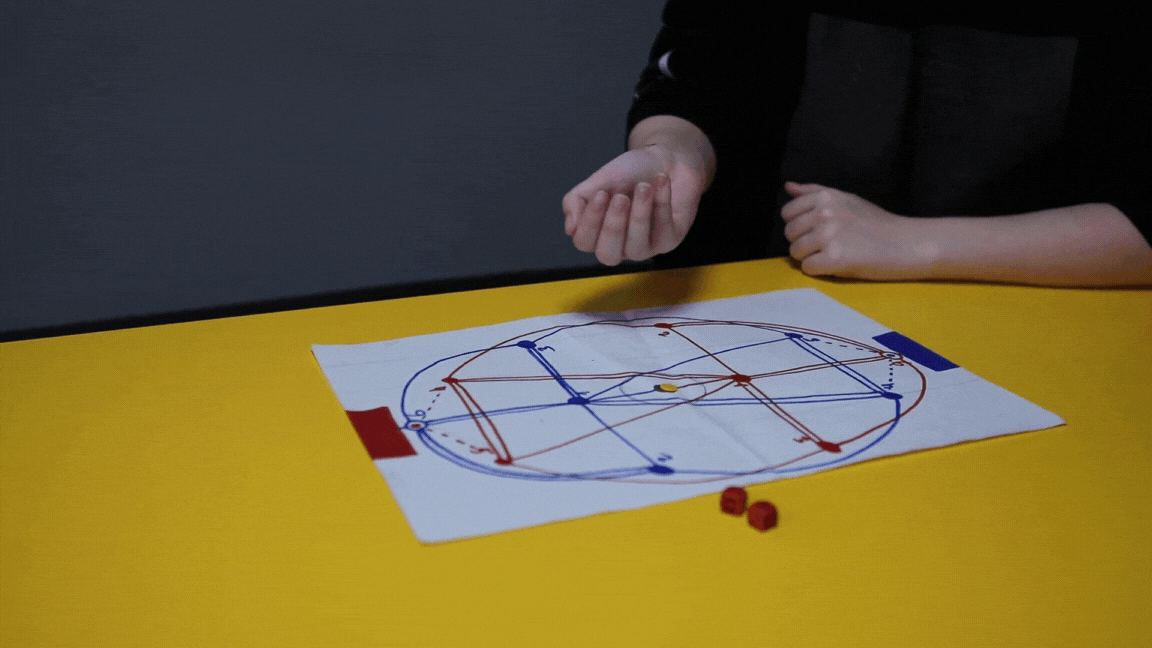
In table hockey, players throw two dice to see who goes first, which position they should take, and what chance they have to score or defend their gate. Video by Dmitry Grigoryev / ITMO.NEWS
The second assignment was comparable to the one from the first round. We now needed to transform the idea into a design. To do that, I expanded on the characters, gameplay, quests, economics, and setting in general. I feel the judges gave more marks to those who went above and beyond. In my case, I contacted the Hermitage cat’s spokesman to learn more about the cats, solicited advice from the museum’s restorers to make the minigames more convincing, made a video to give a feel of the game’s balance and gameplay, and, last but not least, built a prototype.
In the game, cats are calling the shots at the Hermitage Museum; they repair artworks, sell tickets, watch over the building, promote the museum on social media, and so forth. Gamers play as the cats’ director who must help their fellow workers to perform their duties, recruit new hires, and collaborate to boost the museum. Available upgrades are divided into four historical epochs. A player, for example, can buy a turnstile in the first era and a souvenir store in the second. To obtain improvements, gamers need to complete 40 minigames, some of which are available in the daytime, while others – exclusively at night, which keeps players interested.
ArtMasters 2023 gathered whooping 21,000+ participants from 40 countries, including Spain, Greece, Germany, Japan, and others
In the end, I took first place by a wide margin, earning as many as 91.4 points; the runner-up scored 75.5. I received a PC monitor, a chance to intern at IThub Games, and a monetary prize of 500,000 rubles, which I plan to put toward my other, more low-key project. It is only an idea so far but if approved, I am going to design and produce it.
Takeaways
The ArtMasters contest gave me a boost. For one, I figured out what a game concept and design document is supposed to be like. Game developers do not usually stick to a single format when it comes to these types of documents so finding a ready-made template can be challenging. I think next time I will take care of it because it makes teamwork much easier: it will contain the game’s mechanics and setting, as well as the overall idea, which will help newbies smoothly integrate into the project.
All contest participants were extremely friendly. We lived together in a hotel, came over to each other’s rooms, and hung out together. I met a lot of top-tier specialists from St. Petersburg at the competition so if I ever want to make games for movies or theaters, I know who to turn to.

